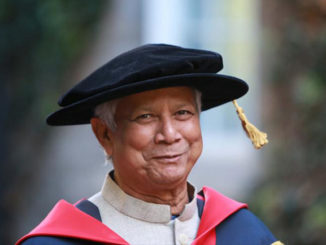
Over three-quarters of DCU students surveyed have never been tested for a sexually transmitted infection (STI), The College View has revealed.
The sexual health survey asked students about their attitudes towards STIs and how they can be prevented.
The majority of students felt there is not enough awareness on safe sex practices for lesbian, gay, bisexual, transgender or questioning (LGBTQ) couples.
This was echoed by the Secretary of DCU’s Lesbian Gay Bisexual Transgender and Ally Society (LGBTA), James Keogh, who said: “sexual health awareness is especially important in the LGBTQ community. There simply isn’t enough information given out to LGBTQ teenagers and young adults, and they are the ones most at risk.”
He added: “It’s vital that DCU provides information and the services necessary to keep its students sexually aware and healthy. I would personally like to see more promotion of STI check-ups in DCU and a possible reduction in the cost.”
Most students who took part in the survey found information about STIs when on the internet or discussing the issue with friends, while the most popular form of contraception among respondents was dual use of the pill and condoms.
When asked if they thought it was acceptable to engage in sexual activity with a person who is intoxicated and might not be in a position to give consent, 12 per cent of students answered yes.
Sexual health awareness has been a hot topic in recent weeks after a survey carried out by a team from the medical school at University of Limerick revealed that one in ten Irish university students have contracted an STI.
Health Promotion Officer at DCU, Triona Keane, said the best advice to students for safe sex practices is to “limit your number of sexual partners, always wear a condom and know how to apply it correctly. It also helps to know your sexual partner.
“Remember: 70 per cent of people who develop chlamydia have no symptoms so it is crucial to undergo constant screening. Always watch out for any signs that you may have an STI. If you think you have an STI, contact your GP. All you need to treat an STI is a simple course of antibiotics so don’t be afraid.”
Keane also hopes to work closely with the Students’ Union next year to raise more awareness around sexual health issues. When shown the results of The College View survey, she said that more STI clinics and working with the LGBTA Society is something she will “definitely look into” for the next academic year.
The majority of students surveyed agreed that they would like the SU to look into having more frequent STI clinics on campus that are either free or subsidised.
One student said: “I think they’re making progress but there needs to be more factual information made readily available (maybe in the form of leaflets) on different types of infections and the symptoms to look out for. The SU can tend to focus a little too heavily on the social side of things.”
Another commented that “maybe if STI tests were less expensive people might go more. Also, the fear factor of getting a test, people don’t know what to expect when in reality it’s not that bad.”
Other students suggested that the SU should make a year-long effort rather than just a once-off SHAG Week; raise more awareness on issues such as erectile dysfunction and vaginismus; and maybe organise a compulsory sex talk for incoming first-year students.
DCU SU’s incoming Welfare Officer, Eve Kerton, has also spoken about increasing sexual health awareness in DCU next year as part of her new role.
She said: “I feel that DCU is providing an acceptable amount of information on sexual issues for heterosexual people, however, there’s a serious lack of information for gay and lesbian students. One item on my manifesto was to incorporate information on same-sex protection; it is often ignored and overlooked, and this worries me.”
“I want to provide more regular STI checks, even if it’s one per semester, it’s better than just SHAG Week. I want to bring SHAG Week back to basics, letting people know the dangers of casual intercourse, and publicise the help and services that are available to students. I also want to remove the stigma as regards discussing sexual problems,” she added.
230 students took part in the survey which was distributed to students across all schools and faculties.
Ciara Moore




Leave a Reply